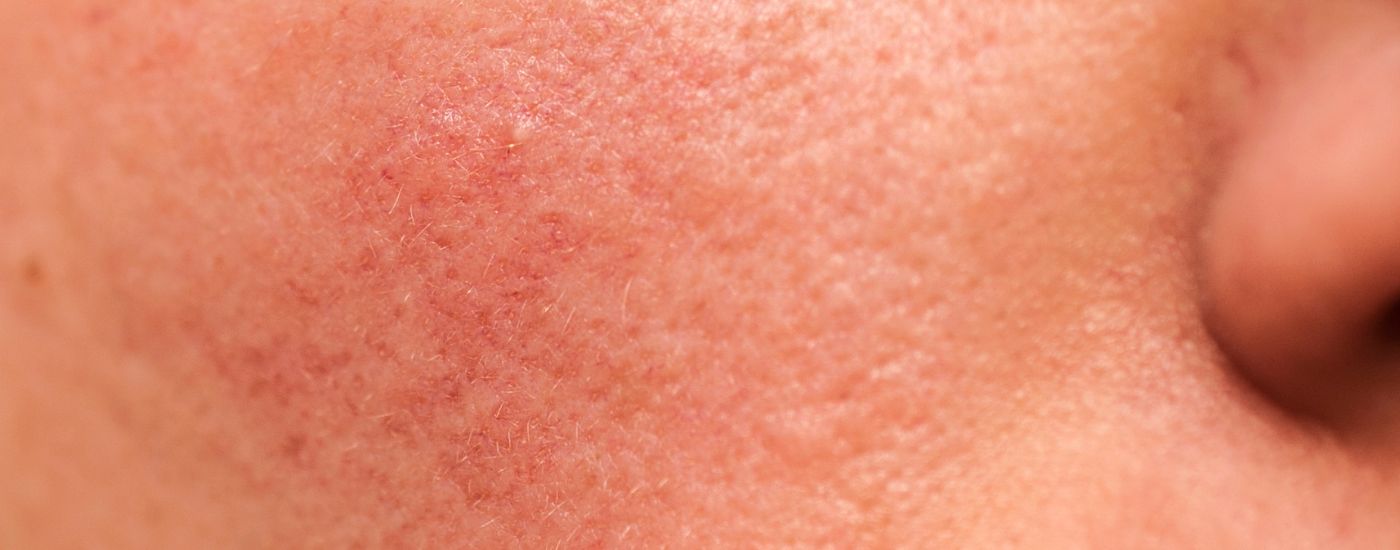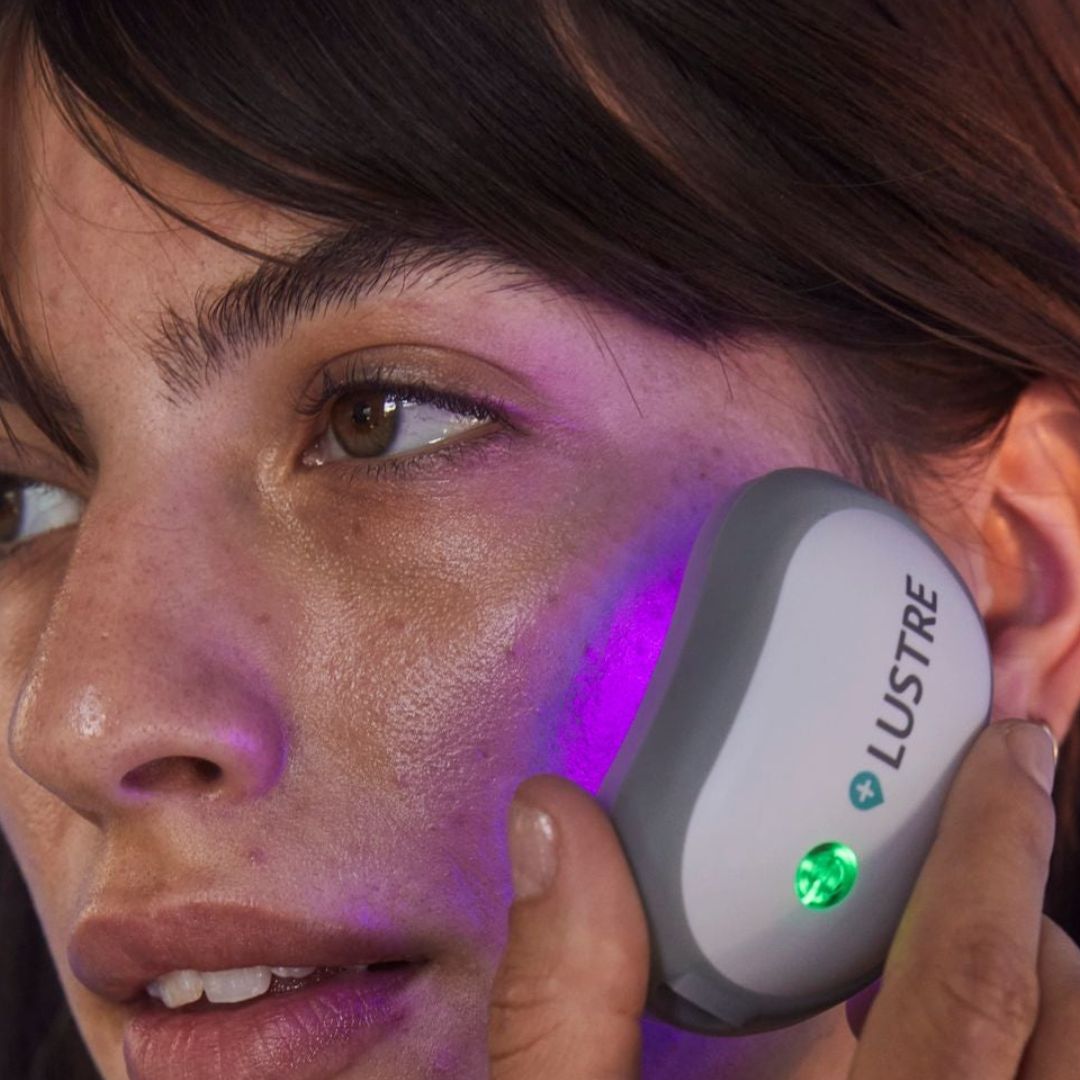Rosacea

Rosacea is a common skin condition that can affect many people. It appears to be more common in those from a Celtic background – fair skinned red-heads being the most susceptible.
There are different variants of rosacea – it can range from being a relatively mild condition with the skin (mainly cheeks and nose) having a reddish tinge, to being more severe with pustules, pronounced redness and can even affect the eyes and change the appearance of the nose.
It is important to be aware that rosacea is a chronic condition. This means that it can never be fully cured, but it can be managed and effectively controlled, which means less flare-ups and breakouts.
Although the actual cause of rosacea is unknown, it is thought to have a genetic component meaning that it can run in families. It often does not appear until you reach your 30’s and 40’s and is thought to be more common in women.
Generally, rosacea-prone skin is more sensitive and reactive – this can be due to both internal and external factors.
Most people who suffer from rosacea become aware that they have environmental triggers – common culprits being spicy food, alcohol, emotion, sunlight, and temperature changes (hot and cold).
Rosacea can seriously impact an individual’s enjoyment of life, especially in social situations when it may give rise to the possibility of flushing and attracting unwanted attention. This can all undermine confidence and cause distress and anxiety.
So, what can be done to minimise the impact of rosacea? How can it be effectively managed, and symptoms kept under control?
It makes sense to take a holistic approach – if the innate sensitivity of the skin can be downgraded then the tendency to flush, even with the usual triggers can be much less.
Skin treatments such as red light therapy (633nm) have been well established as an effective way to minimise and reduce redness. Whether this is using in-clinic treatments such as Omnilux or home-based treatments using a LUSTRE® Revive mask – both can be effective in providing the essential calming wavelength of light.
Each individual is likely to have different triggers which it can be worth paying attention to:
- With respect to food and drink, you could try keeping a 'skin diary', detailing what you are eating and drinking taking note of your skin behaves. This can help to identify which parts of your diet may be causing problems.
- It may be necessary to keep a skin diary over a period of 2-4 weeks – apart from flushing, which can be immediate, it’s worth bearing in mind that your skin may respond to food eaten a few days earlier. The diary will help you to keep track and patterns of response should become apparent.
Nobody likes a life that is too restrictive – so you don't have to completely cut triggers out of your diet!
At the end of the day, it's all about balance – if you want to enjoy your favourite curry or glass of wine at the weekend, just be aware it may trigger your skin. If on the other hand, you have a special occasion for which you want to keep your skin clear for you may want to give the suspect food a miss.
So, this doesn't mean that you can never have foods that trigger your rosacea ever again, it's more about identifying these triggers are and learning how to cope with them.
But what about other triggers such as sunlight and temperature changes?
There is no doubt that the sun has an impact on the health of all skin and sun damage is the primary cause of premature ageing.
- Wearing broad spectrum SPF every single day is a must for everyone (not just people with rosacea). This means an SPF effective against UVA and UVB – factor 30 or above preferably and, most importantly, this should be worn on cloudy days too and not just when the sun is shining.
- Being aware of how your skin responds to temperature changes means you can plan ahead and dress accordingly, even take a fan or other measures to help manage the ambient temperature.
- When it comes to the products that you use on your skin, there is no doubt that an effective skincare routine can help lessen redness and reduce sensitivity of the skin.
- Using products that do not provoke your sensitive skin can certainly reduce redness and help calm irritation.
- Skincare products with anti-inflammatory ingredients can help calm the redness and reduce the tendency to flush.
All in all, a simple routine should include a gentle cleanser, an anti-inflammatory serum, sunscreen and a moisturiser.
When we reflect on the typical age that rosacea can develop in women, it is worth commenting that this common turning point is also when you hit the peri-menopause. This tends to be from about 35 years and onwards when the ovaries start to fail and produce less hormones. As oestrogen levels fall, this has a direct effect on the levels of hyaluronic acid within your skin thus reducing hydration, plumpness and moisture. Both the combination of the skin becoming drier and uncomfortable hot flushes can be enough to trigger a flare-up of rosacea.
With increasing awareness of the relative safety of HRT in both managing the symptoms of the peri-menopause and providing hormonal balance in the subsequent years, it may be worth considering how balancing your hormones can also help to manage and even prevent this troublesome skin condition from taking over your life.
So, in summary – if you are either currently affected by rosacea or are worried that this condition may at some point impact on your health and well-being, be aware that there is a lot of effective help out there to manage, minimise and prevent the symptoms.
- Being aware of your individual triggers and taking steps to manage these,
- Taking good care of your skin by using daily broad-spectrum SPF and appropriate skincare regimes
- Accessing effective red light therapy whether this is in a clinic or at home
- Balancing your hormones during the perimenopause
Get in touch if you have any questions about Rosacea and LED lights - and we will get you the answer from a GP Dr Sam Robson: info@lustreskin.com
 DR SAM ROBSON - TEMPLE MEDICAL CLINIC, ABERDEEN
DR SAM ROBSON - TEMPLE MEDICAL CLINIC, ABERDEEN





